Votes at 16
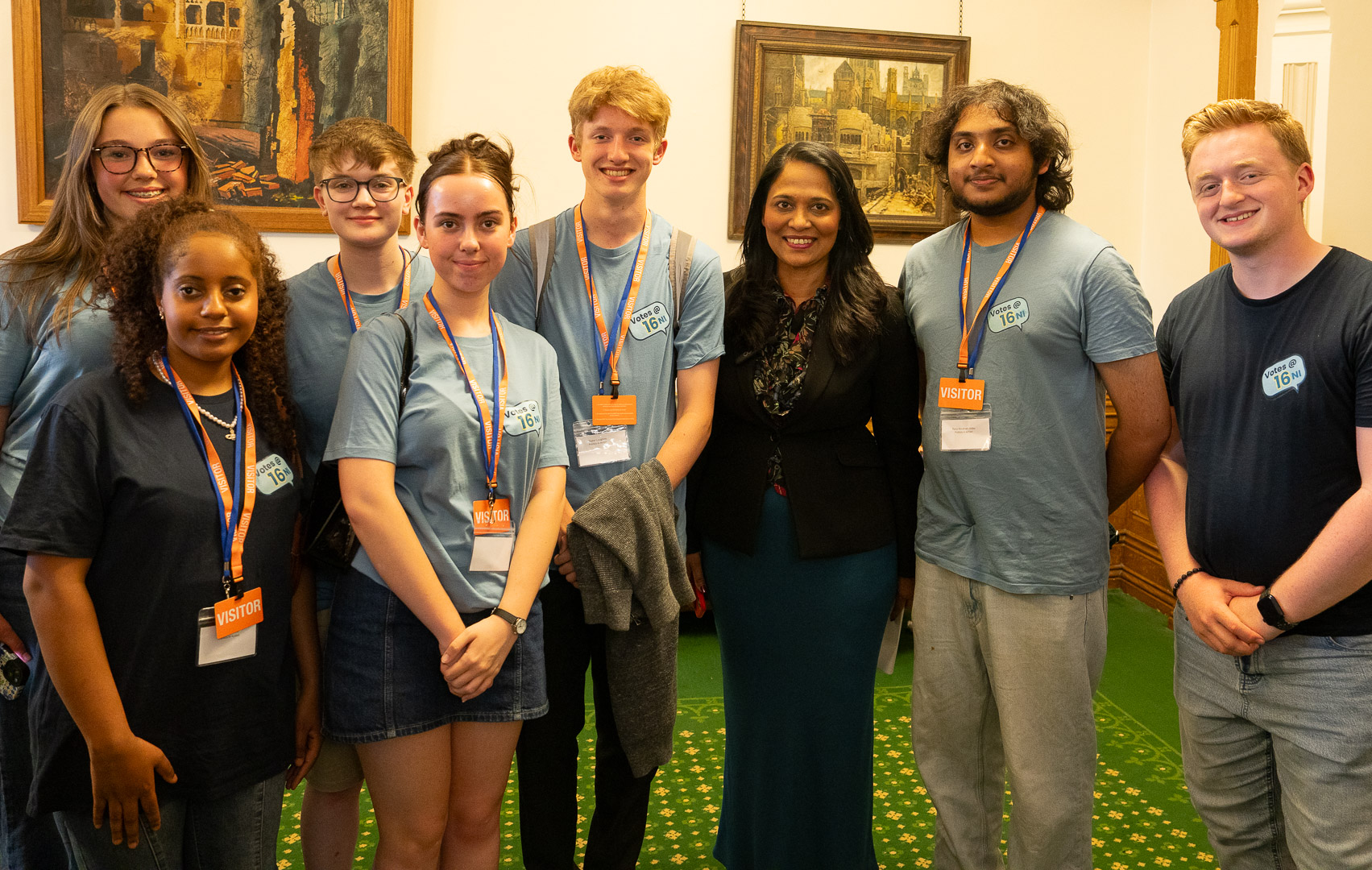
Votes at 16 is Coming!
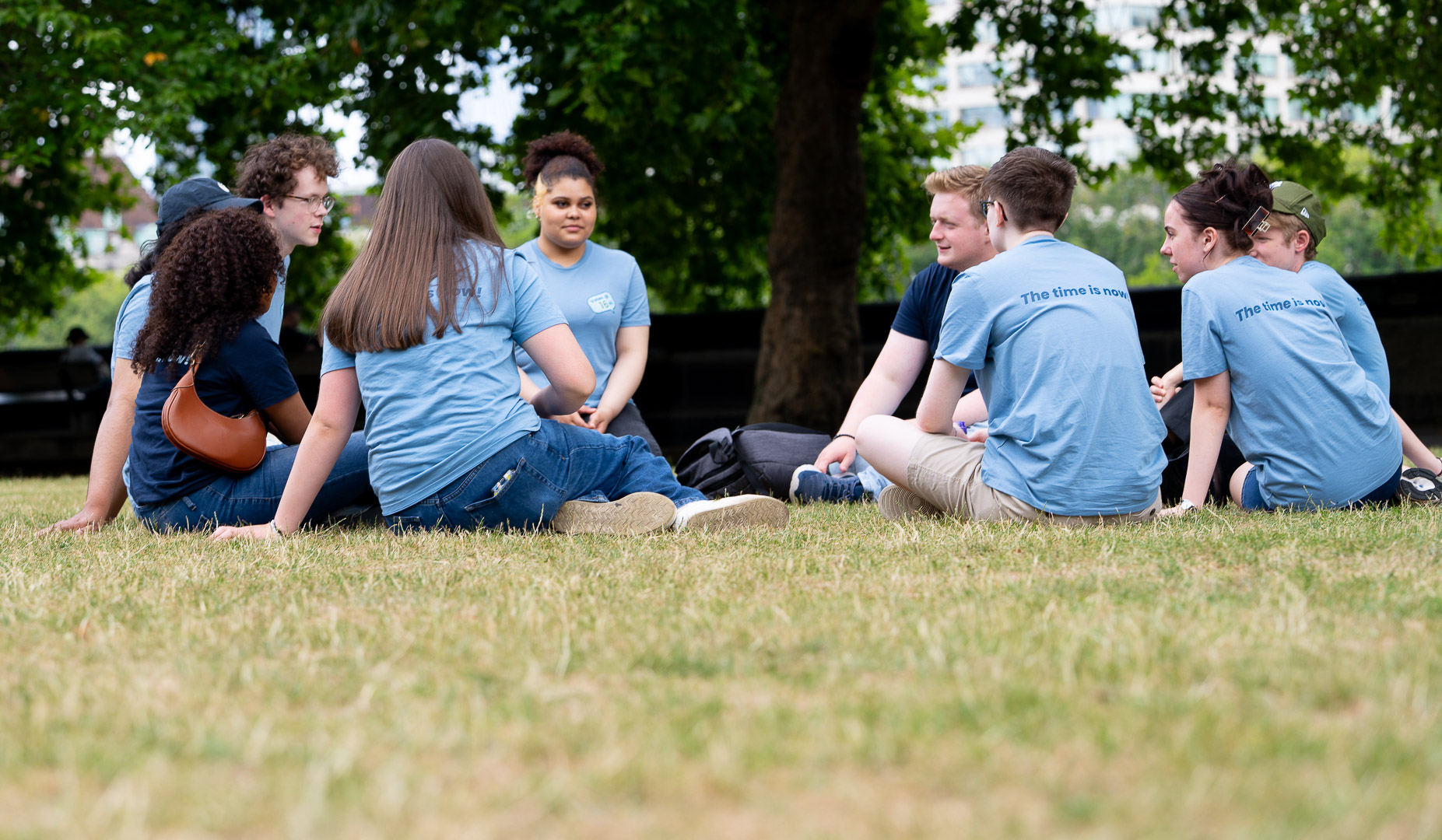
At long last! The UK government confirm “sixteen year olds will be given the right to vote in all UK elections as part of seismic changes to modernise UK democracy.”
Politics in Action have co-ordinated a youth-led campaign to lower the voting age since April 2024. Over 30 young people from across Northern Ireland have been campaigning to extend the franchise, meeting with politicians, academics and policymakers, and collaborating with organisations such as Democracy Classroom to devise a cross sector vision for delivering votes at 16 effectively across the UK.
Ahead of the Government announcement, our team travelled across to London with 9 young campaigners, to attend a series of events organised by our partners at The Politics Project. These events brought together young people, NGOs, academics, teachers, policymakers, politicians and other key stakeholders to establish how votes at 16 can be implemented well in the UK.
On Wednesday 16th July 2025, Democracy Classroom, in collaboration with Politics in Action, launched The Roadmap to Votes at 16 in Parliament alongside Minister for Housing, Homelessness and Democracy, Rushanara Ali MP. The ‘Roadmap to Votes at 16’ sets out a shared, UK wide vision for the successful implementation of Votes at 16 across the UK.
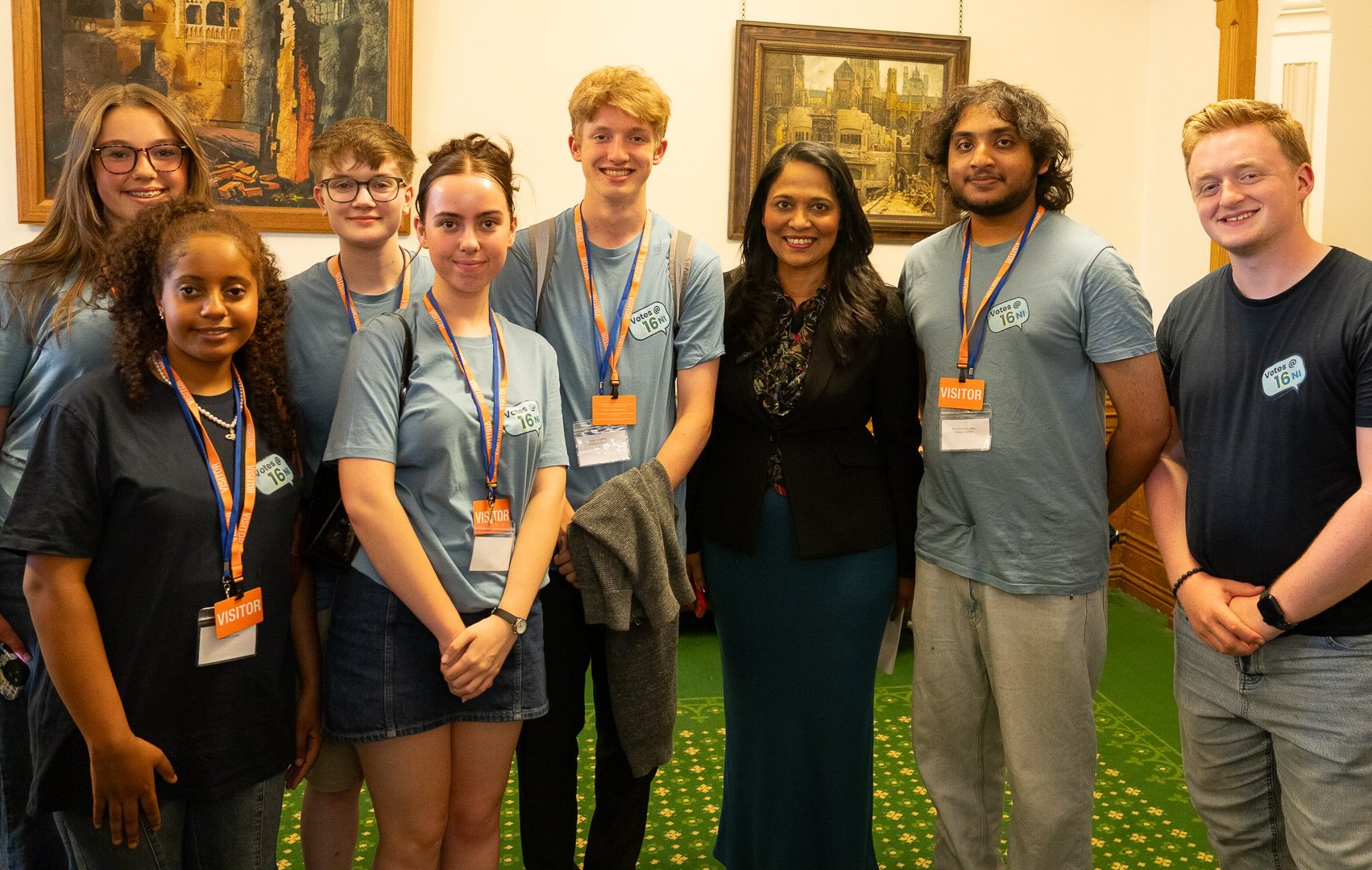
Developed through the Democracy Classroom Network, the roadmap has been co- designed with teachers, youth practitioners, and young people, and shaped in partnership with leading organisations from the education, youth, and democracy sectors.
On Thursday 17th July 2025 the Government announced that they will grant 16- and 17-year-olds the right to vote in all UK elections through electoral reforms. We welcome this commitment by the government, alongside other reforms such as Automatic Voter Registration and widened voter ID requirements. These reforms will go far to remove barriers to voting and increase participation in our democracy.
Our Job is Not Done…
Although we are delighted to see the Government’s commitment to lowering the voting age, our work here is not finished! We will continue to push the government to legislate in time so that young people in Northern Ireland can exercise their democratic rights in the 2027 Northern Ireland Local and Assembly Elections.
Furthermore, a key component of our campaign since its inception is the provision of high quality civic and political education for all young people, so that every individual can access an impartial, inclusive, knowledge-rich and engaging democratic education.
We will continue to petition the Department for Education, and Minister Paul Givan to provide the scope for such an education within his ongoing strategic review of the Northern Ireland Curriculum.
We will continue to work with stakeholders in the education sector, such as the Secondary School’s Student’s Union for Northern Ireland, teachers, teaching unions and most importantly, young people to determine what this education should look like, and to understand what tools and support young people need to effectively exercise their democratic rights.
Politics in Action’s Votes at 16 Campaign: The Context
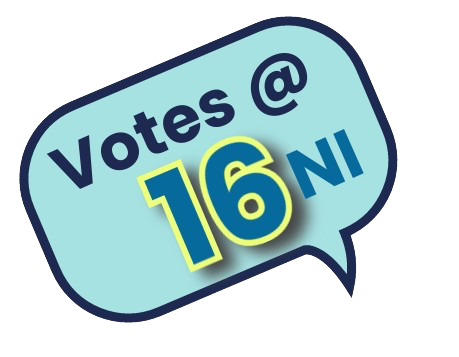
You maybe knew that Welsh and Scottish 16 and 17 year olds get to vote in local and Scottish Parliament/ Senedd elections. Did you know that many other countries around the world have also given young people the vote? From Brazil to Austria, Ecuador to Jersey - increasing numbers of countries are recognising that young people have the maturity and capacity to make informed choices in elections. There are also active campaigns in New Zealand, Australia, Canada and many other countries around the world.
Politics in Action want to see the rights that Scottish and Welsh young people have extended to Northern Ireland. We would also like to see the Irish Government reduce the voting age, as recommended in 2017 by their Citizen's Assembly. Not only will this help increase young people's interest in politics - it will also mean that politicians across the island need to take young people, and the issues they face, more seriously.
We want to see the right to vote at 16 accompanied by high quality political education in our schools - and programmes like ours extended to more schools and youth work settings to help build young people's awareness and civic engagement.
To learn more about votes at 16 in the devolved nations, we travelled across to Edinburgh and Cardiff with our Better Peace Podcast Crew to better understand how votes at 16 had played out in Scotland and Wales; has it been a success? What can we learn? How can we move forward the campaign for Northern Ireland?
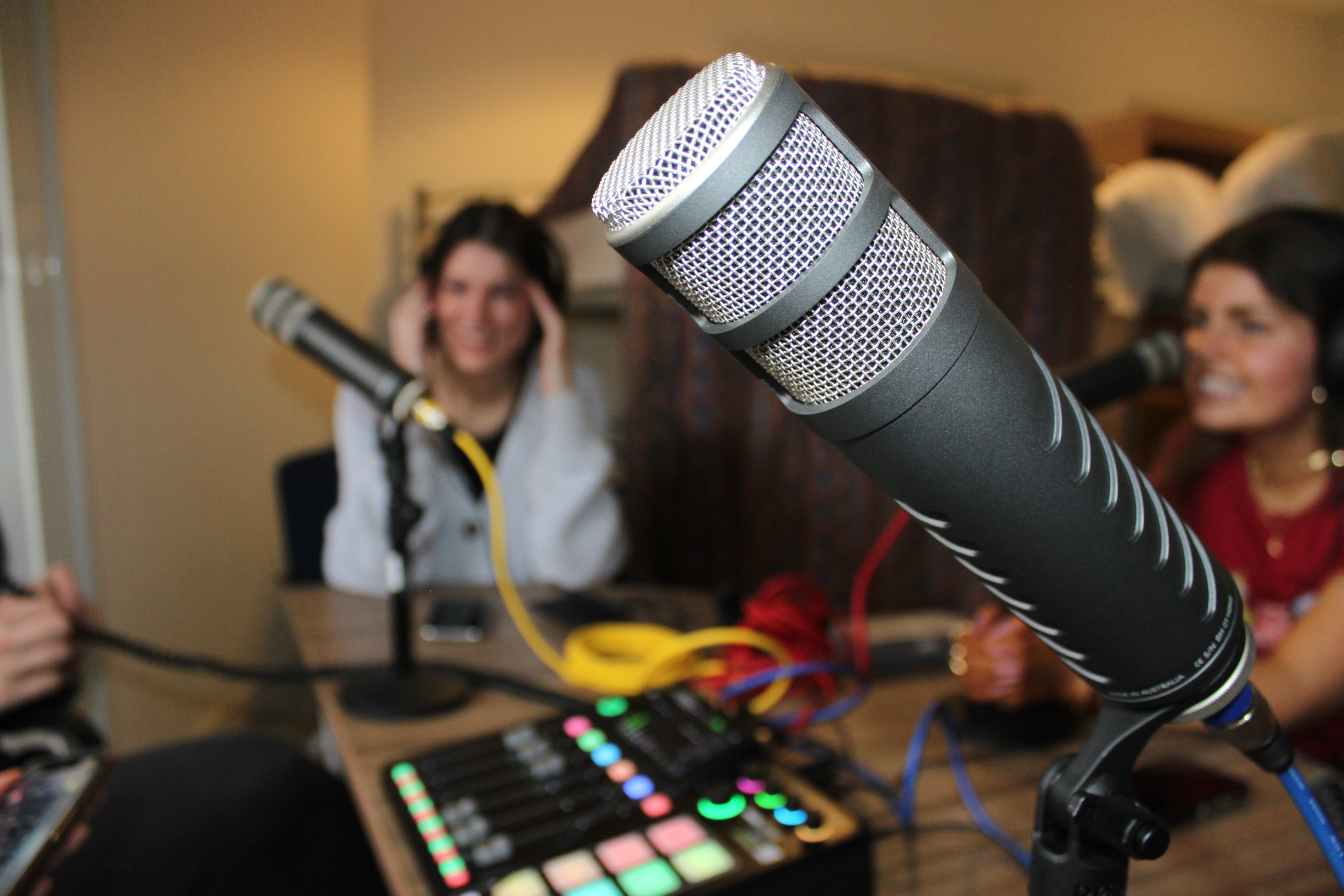
The second and third episodes of our new podcast, Better Peace, are all about Votes at 16 in Scotland and Wales. Listen and subscribe wherever you get your podcasts!
Launching Our Campaign
In September 2024, we officially launched the campaign to lower the voting age in Northern Ireland. The Launch Conference hosted world leading experts on Votes at 16, including Dr Jan Eichhorn of the University of Edinburgh, whose research highlighted the increase in voter turnout and the positive voter behaviours associated with lowering the age of voting. The launch conference was the first of its kind in over a decade in the UK, bringing together young people from across the four nations, policymakers, politicians and educators to discuss the importance of votes at 16, and how we can drive participation in democracy.
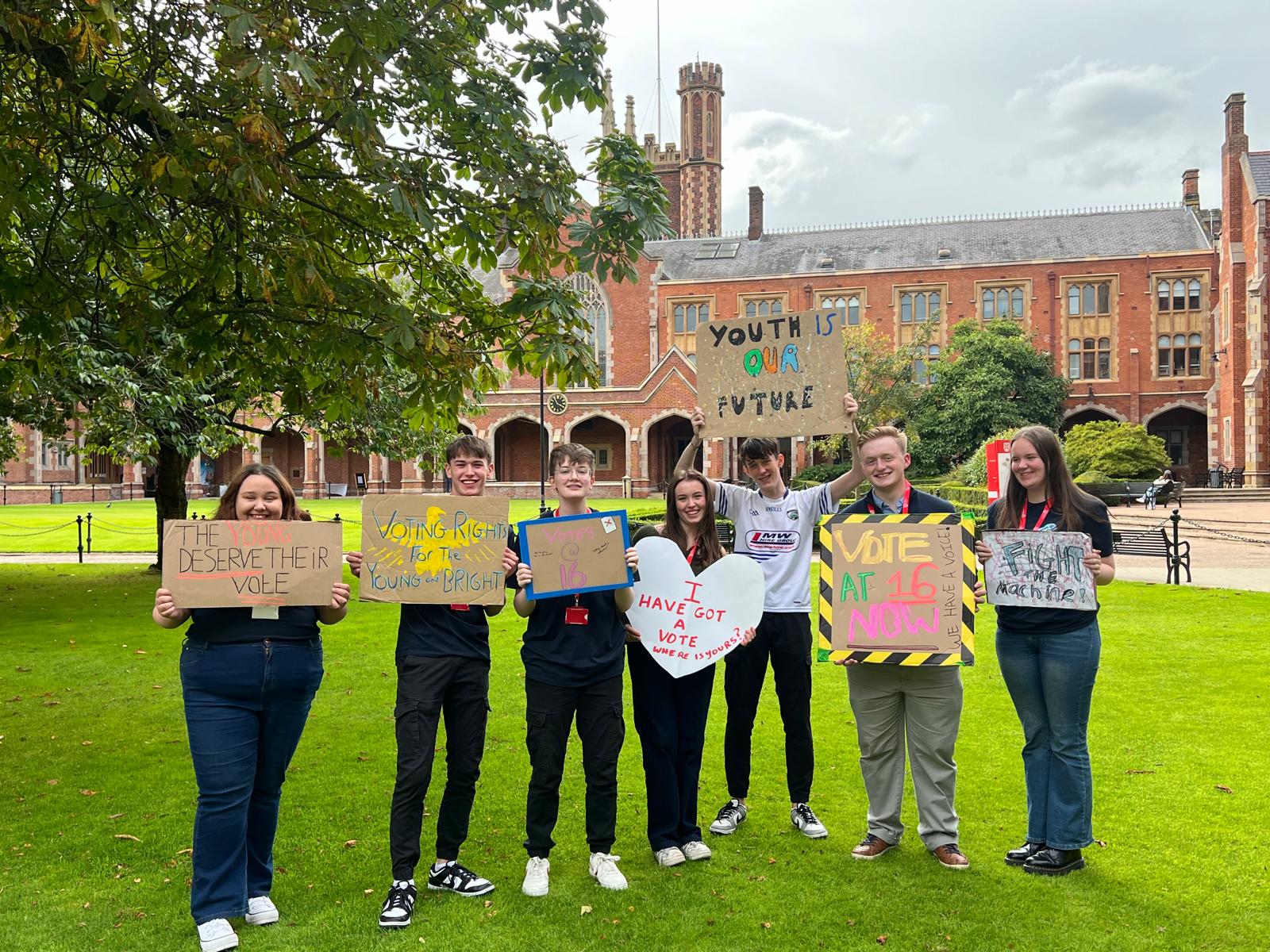
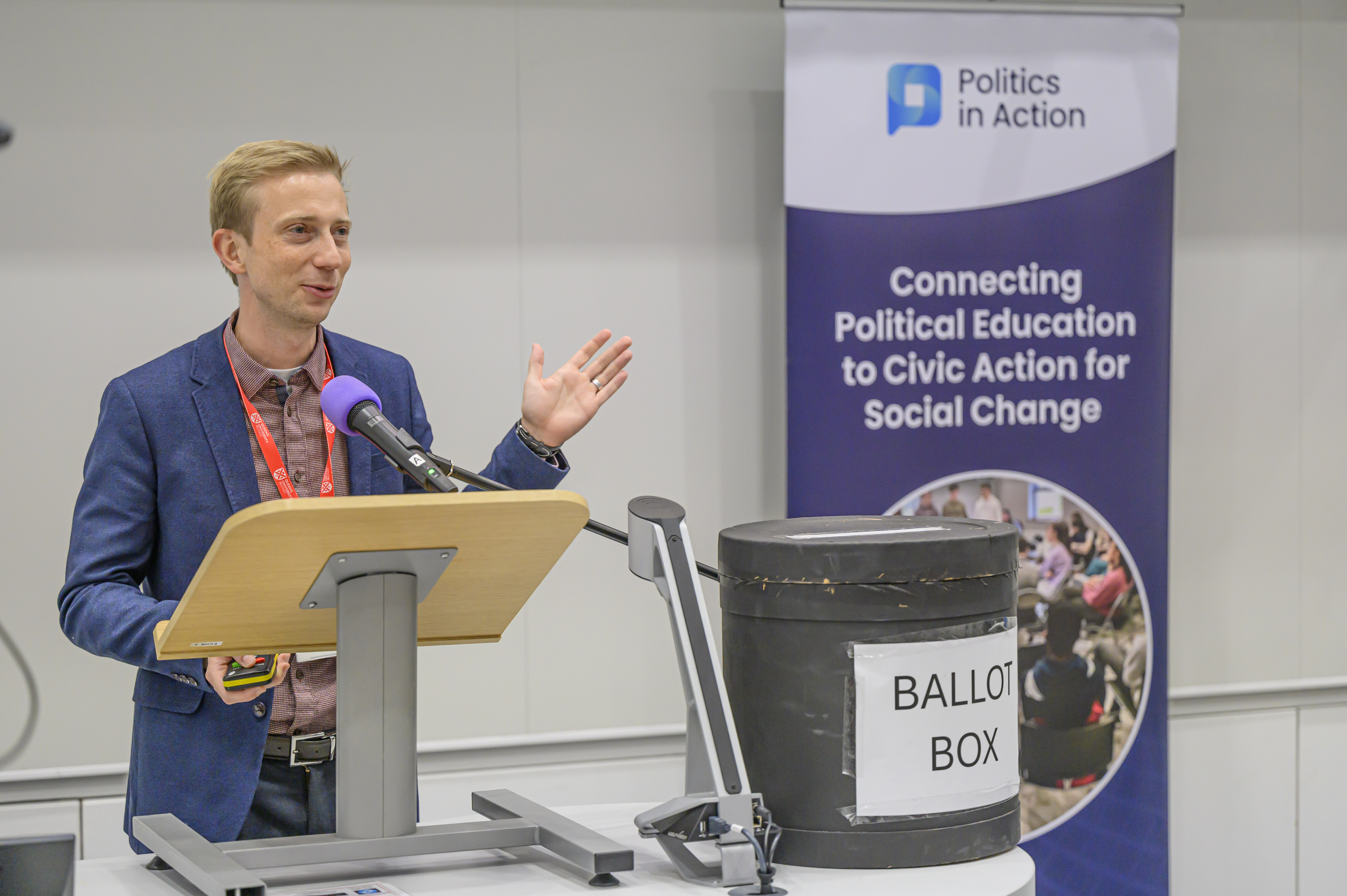
Just nine days following the official launch of our campaign, the Northern Ireland Assembly debated and passed a Sinn Féin motion calling for the British government to legislate to lower the voting age in NI. This motion was amended by the Alliance Party to include provision for improved civic and political education in the curriculum. This motion arose as a direct response to our campaign, and although the motion remains symbolic in its impact, it has reaffirmed the political appetite for the change and firmly re-established the debate within wider public discourse.
Why lower the voting age to 16?
1) Young people are capable and engaged
The idea that 16 and 17 year olds lack the intelligence or critical thinking required to participate in electoral democracy has been debunked. When faced with situations that require unhurried, deliberate consideration – what is known as ‘cold cognition’ - 16 year olds demonstrate judgement as mature as that of adults. People use cold cognition in matters such as granting informed medical consent, standing trial in court ... and voting! In the weeks and months before an election, young people have time to use their cold cognition skills, gathering evidence and talking to their friends, family and peers before making an informed decision.
Young people have been at the forefront of political activism and campaigning at a global and local level – campaigning for climate action, better mental health services, relationship & sexuality education and much more. Our young people are already politically engaged and informed. It’s time they are given a democratic voice in electoral politics!
2) Young people can make up their own minds
In countries where they have the right to vote, 16 and 17 year olds don’t all vote the same way. Young people can and do make up their own minds on important social and political issues – just like voters of all ages!
It is true that in most European countries, young people tend to support left-leaning parties in higher numbers than adults. However, as more data emerges from countries where the voting age has been lowered, we learn more about the impacts on the wider political landscape – the results can be surprising!
• Support for centre-right parties amongst young voters at the last Austrian election was relatively high.
• Recent research found that adolescents in Germany tend to be slightly more undecided about political parties and slightly more often neutral towards policy issues.
• In the run-up to the 2014 Scottish Independence Referendum, over 40% of 16 and 17 year olds held a different view of independence than their parents.
3) Habits formed earlier are longer-lasting
We know that voter turnout among young people tends to be low. At age 18, many young people are leaving school and starting university or entering the world of work, sometimes moving out of the family home for the first time. Granting young people the right to vote at this transitional phase in life can dampen voter turnout for first-time voters. By contrast, lowering the voting age to 16 can have a positive impact on electoral participation.
Evidence from Scotland shows that when they are given the right to vote, 16 and 17 year olds turn out in even greater numbers than young people aged 18 to 24. This is because at the ages of 16 and 17, young people are more likely to live in environments with strong socialisation influences, like the family home and school. An earlier first-time voting experience, before the transitional phase of life begins around age 18, helps young people to learn the habit of voting, rather than abstention. These are the ideal conditions for forming positive and long-lasting habits!
4) Respect for fairness and equality
Young people aren't just citizens of the future – they're full and equal citizens now! 16 and 17 year olds can get married, work, pay taxes, care for loved ones. They use public services (health, education, transport, etc). They’re an active and valuable part of society – why shouldn’t they have a say in how things are governed?
Young people in the UK and Ireland are experiencing a postcode lottery of voting rights. Extending franchise to 16 and 17 year olds would place young people here on a more equal footing with their peers in other countries, including Scotland and Wales, where young people can vote in local elections and in elections for the Scottish and Welsh parliaments from the age of 16.
5) Reduce political inequalities
Socially disadvantaged young people tend to show lower rates of political participation. This is true for England and Northern Ireland, where the voting age is 18. However, in Scotland, where 16 and 17 year olds can vote, researchers found that this traditional pattern of inequality in political participation by social class was significantly less pronounced among young people.
When 16 and 17 year olds are granted the right to vote in Northern Ireland, it is vital that this is accompanied by plans to develop high-quality civic education. Deliberative political literacy education can help to mitigate inequalities in political knowledge, confidence and participation from the earliest possible stage. Schools and youth organisations have a crucial role to play in empowering, supporting and encouraging young people to engage with politics.
Get Involved!
Young people
We are recruiting a Campaign Group, made up of young people who will drive the movement for Votes at 16. Are you under 18 and interested in getting involved? Join the Campaign Group by contacting emily@politicsinaction.org!
Organisations
If you would like to sign your organisation up as a campaign supporter, please contact emily@politicsinaction.org for more information.
We’re proud to have the support of the following groups and organisations:
• Beat Carnival
• Belfast YMCA
• Catholic Guides of Ireland
• Children in Northern Ireland
• Children’s Law Centre
• Climate Craic
• Diverse Youth NI
• Ecojustice Ireland
• Friends of the Earth Northern Ireland
• Girlguiding Ulster
• Include Youth
• Involve
• Migrant Democracy Project
• National Children's Bureau
• Northern Ireland Youth Forum
• NUS-USI
• Secondary Students’ Union of Northern Ireland
• St Peter’s Immaculata Youth Club
• Start360
• Voicing the Void
The proposal to lower the voting age to 16 generates great interest and debate amongst young people. Please contact us if you work with young people and would like us to facilitate discussion and debates about votes at 16!
Make Change Happen Today


